Most human behaviour is learned observationally through modelling, implementation and action. So in the lead up to exams, past student Huw Evans – an ATAR top performer – shares the secret to exam success.
In 2016, Huw achieved an ATAR of 99.9. He studied Mathematics Extension 1 and 2, English Advanced, Extension 1 and 2, Physics, and Software Design and Development (for which he finished first in NSW).
Here are his top proven study tips:
-
At school
- Get involved in class discussion and ask your teachers questions. Make sure you leave the classroom 100 percent sure of every concept.
- Explain concepts to your mates – the HSC is about explaining things to the markers so this way, you will figure out pretty quickly what you do and don’t know.
- In mathematics, spend the entire time doing the exercises from your textbook and push yourself to achieve big things. If you don’t know how to do a question, ask.
- At the HSC level, mathematics isn’t about getting the right answer — it is about knowing how to solve the problem. Develop principles, not formulas.
-
During study
- Study with people who are better than you and develop a competitive environment.
- Choose somewhere where you won’t be distracted. The State Library is perfect for this – it’s too quiet to talk, the internet is too slow to procrastinate, and everyone around you has their head down to make you feel really guilty if you’re not studying.
- You need to always push your group, and they need to be pushing you. If you study with people who don’t inspire you or drag you down, you can’t expect to perform.
-
Past papers
- Do as many past papers as possible under exam conditions. Never ‘save up’ past papers to do closer to the exam — you won’t run out with sites like THSC Online (save the files as PDFs, you never know when they might go down).
Huw’s quick tips for doing past papers effectively
- Eliminate distraction.
- Pick a paper that’s harder than you think you can do.
- Perform under test conditions. Set a timer for however long the paper is.
- Do every question fully as if you were sitting the exam.
- Mark yourself accurately, according to the criteria.
- Track your marks on a spreadsheet and include columns for year, time to finish, marks for each section (important if you’re weak on multiple choice, focus on multiple choice), percentatage and focus areas for next time.
- Graph your results — it doesn’t matter if you’re getting 40% on each exam as long as your marks are improving (or you’re just doing harder and harder papers). Aim to be hitting 95 percent and up regularly on hard exams before you go into the final exam.
- Before you do the next paper, review the focus areas from last time on your spreadsheet. Now you won’t get those questions wrong.
Huw sums up the key takeaways as: make good use of your resources – teachers, peers and past papers; surround yourself with people who are smarter than you; measure, record and track everything that you can and Practice! Practice! Practice!
The HSC can be a difficult time for both students and parents. To help you navigate this period we have put together The HSC Survival Guide – a guide containing expert advice for parents from teachers, counsellors and around the web. Download your copy by clicking the banner below.






